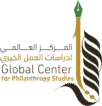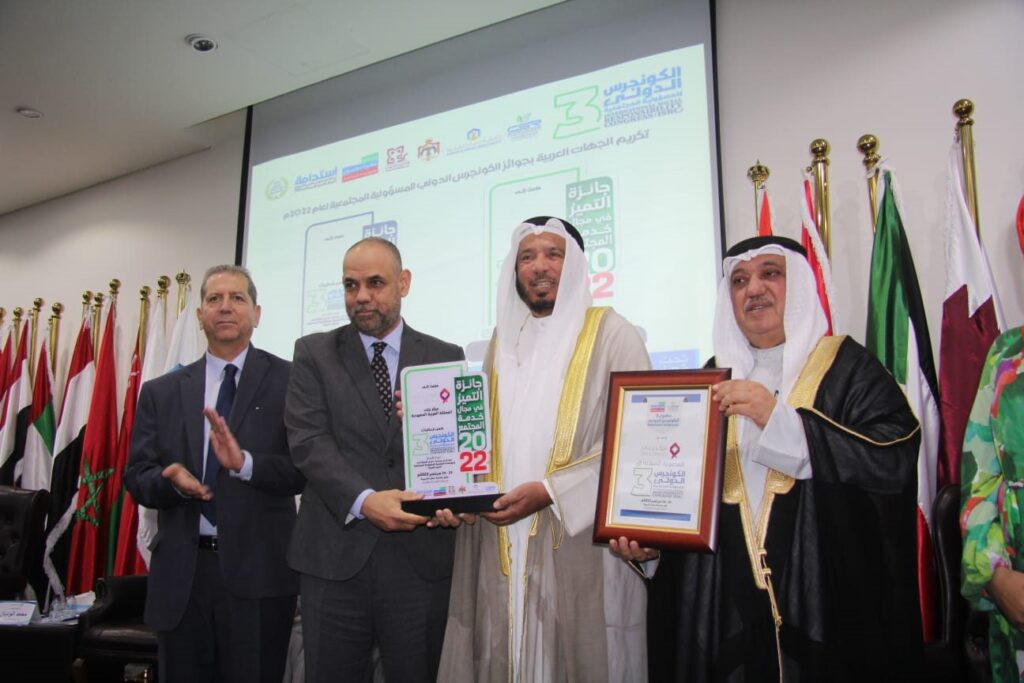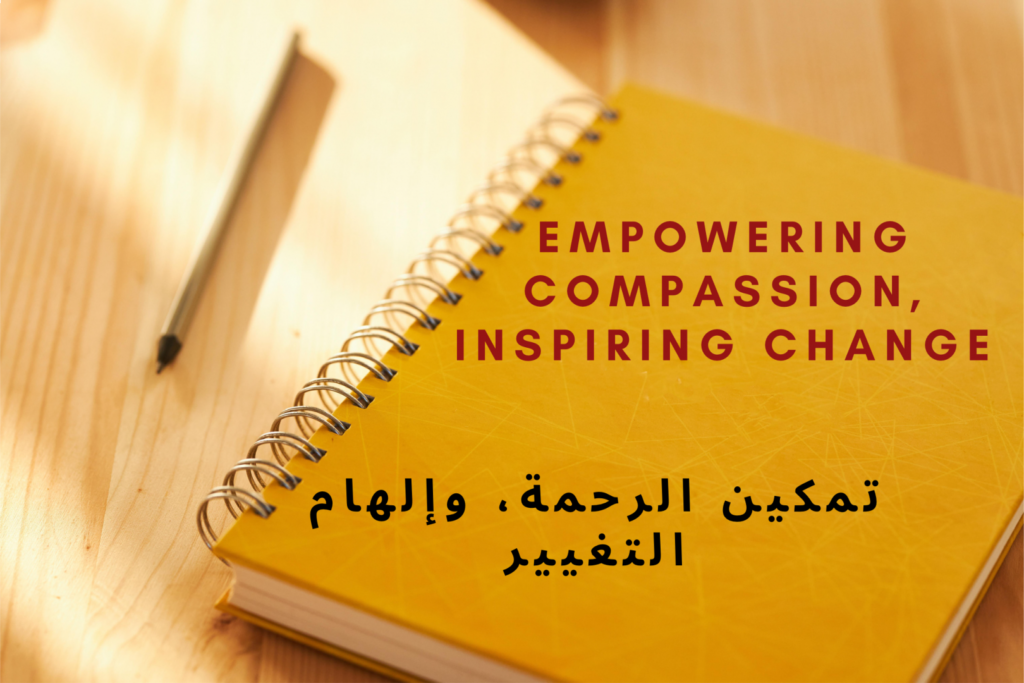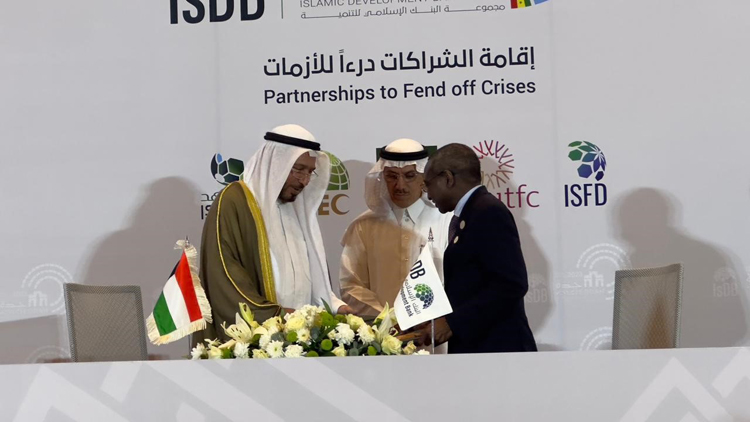Dr. Al-Maatouq sponsors the activities of the International Congress in its third edition of 2022 in Jordan
Exceptional circumstances force civil society institutions to join hands to support vulnerable groups
Social responsibility is a religious duty imposed by our Islamic religion, a moral obligation dictated by the human conscience, and an urgent necessity required by reality
The IICO hosted 6 international conferences to support the humanitarian situation in Syria, Iraq, and Sudan with pledges of more than $1.8 billion
The Chairman of the International Islamic Charity Organization (IICO) and Special Advisor to the Secretary-General of the United Nations, Dr. Abdullah Al-Maatouq, sponsored the official launch ceremony of the “Guide to Specification of Social Responsibility in the Arab Countries” initiative in the Jordanian capital, Amman, on the occasion of the International Day for Social Responsibility.
This came within the activities of the International Congress for Social Responsibility in its third edition for 2022, organized by the Regional Network for Social Responsibility and Amman Arab University, in the presence of the Chairman of Talal Abu-Ghazaleh Global (TAG-Global) Talal Abu-Ghazaleh, the Chairman of the Board of Trustees of Amman Arab University. As well as Dr. Omar Mashhour Al-Jazi, the Chairman of the Regional Network for Social Responsibility, Prof. Yousef Abdel Ghaffar, the Chairman of Al-Quds Fund & Endowment, the International Ambassador for Social Responsibility in Palestine, Munib Al-Masri, and a group of academics, interested parties, philanthropists and Social Responsibility Ambassadors.
In his speech, Dr. Al-Matouq said, the humanitarian crises, challenges, and risks that the world is experiencing have necessitated us to work with all sincerity and dedication to establish real contributions in the field of social responsibility applications, and work to adopt them as sources of strength that help overcome the repercussions of these risks and crises.
He pointed out that the social responsibility of civil society organizations is a sustainable effort that enhances the development process and meets the needs of the neediest communities, pointing to the great role of social responsibility programs in addressing the repercussions of the COVID-19 pandemic.
He added, “As this pandemic subsides and life returns to normal, we are hopeful, but the world was soon swept by multiple crises, either economic due to the Russian-Ukrainian war, or humanitarian due to floods, desertification, and drought.
Dr. Al-Maatouq pointed out that the exceptional and critical circumstances surrounding the world, especially poor communities, require all civil society organizations to spare no effort or reduce the effort in working together to support vulnerable groups, and raise humanitarian response rates to their needs. As well as to consolidate the culture of social responsibility in the face of difficult living and economic conditions besetting fragile societies.
He stressed that social responsibility is a religious duty imposed by our true Islamic religion, a moral obligation dictated by the human conscience, and an urgent necessity required by reality. So, Kuwaiti official and private charities, under the directives of His Highness the Emir Sheikh Nawaf Al-Ahmad Al-Jaber Al-Sabah, have been intensifying their efforts in facing crises. These efforts have recently been manifested in the launch of emergency popular campaigns to the relief victims of drought in Somalia and floods in Sudan and Pakistan, for example, Kuwaiti charitable organizations have collected more than $2 million for the relief of the Pakistani people within three days, with the participation of more than 22,500 donors. The campaign continues by sending relief delegations to inspect the affected areas, transmitting images of suffering and distributing aid.
Dr. Al-Maatouq referred to the journey of the IICO as one of the Kuwaiti charitable institutions that have been able, throughout its history of nearly 40 years, to implement more than 25,000 projects around the world, at a total cost of $ 1.3 billion, benefiting millions of poor and afflicted people.
Among the most prominent achievements of the IICO, which he referred to, was hosting 6 international conferences of humanitarian non-governmental organizations to support the humanitarian situation in Syria, Iraq, and Sudan, indicating that these conferences resulted in pledges of more than $ 1.8 billion, and directed to funding relief, development, educational, health and social programs under monitoring and follow-up reports.
In his speech, Dr. Al-Maatouq stood at one of the most prominent projects of the IICO, which is the micro-finance program, whose harvest since its inception in the late nineties of the last century until today has reached 54,436 development and production projects, worth $ 81 million.
Al-Maatouq also pointed out that the IICO is moving to expand this program, which the IICO has implemented in 32 countries around the world, including 14 Arab countries, 9 African countries, 6 countries in the Indian subcontinent, and 3 European countries. The IICO succeeded in improving the conditions of 392,977 beneficiaries and helping to empower 83,491 households in terms of living, education, and health, by financing its micro-projects with soft good loans, with an average of $ 1,458 per project.
In light of this success, he pointed out that the IICO seeks to establish a non-profit financial institution to provide development financing for humanitarian purposes with a capital of $100 million, pointing out that it is continuing to develop a study for this sustainable development entity, in cooperation with a major international consulting organization specialized in this field.
For his part, the Chairman of the Regional Network for Social Responsibility, Yousef Abdul Ghaffar, officially announced the launch of the “International Conference on Social Responsibility in the Arab Countries”, the launch of an Arab standard project for social responsibility. As well as the launch of a digital platform for orphan care in the Arab world, and the selection of the Qatari city of “Da’ayen” to be the Arab Social Responsibility City for 2023.
In turn, Prof. Mohammad Al-Widyan, President of Amman Arab University, said that social responsibility has played an important role in the progress and development of many societies, pointing out that the Arab world is in dire need of activating the role of social responsibility to achieve development and prosperity, stressing the importance of promoting new methods and concepts and behavioral patterns to serve the community.
For his part, the Chairman of Al-Quds Fund and Endowment, the International Ambassador for Social Responsibility in Palestine, Munib Al-Masri, said that Al-Quds is subjected to the fiercest attack aimed at displacing its people, Judaizing the city and obliterating its Arab-Islamic identity, which calls for launching an initiative to support Al-Quds and enhance the steadfastness of its people, praising the support provided by the State of Kuwait to the Holy City.
Furthermore, the participants in the one-day conference discussed titles related to global social responsibility specifications and standards, as well as others dealing with national, regional and international references, and the role of social responsibility specifications and standards, and presented success stories in the applications of social responsibility and harmonization with international specifications and standards in Arab institutions.
They also discussed a proposed business model for an Arab project to build a standard for social responsibility and the role of ambassadors of responsibility and community partnership to lead efforts to adopt a standard for social responsibility in the Arab countries.




